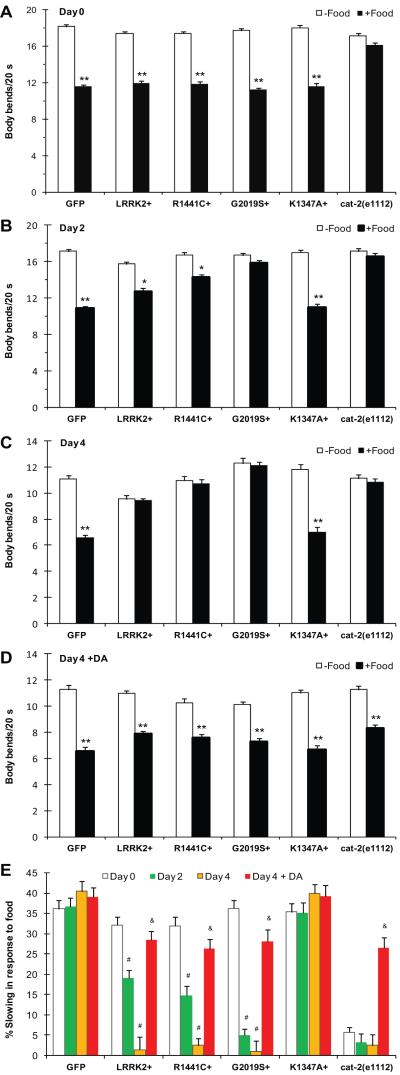Fig. 3.
LRRK2 overexpression impairs dopamine-specific basal slowing behavior in C. elegans. (A-C) Animals were monitored for body bending in the absence (-Food) or presence of bacterial food (+Food) on adult day 0, 2, and 4. They include transgenic C. elegans lines overexpressing GFP reporter alone or together with LRRK2 WT, R1441C, G2019S, and K1347A in DA neurons. The cat-2(e1112) worms deficient for dopamine synthesis were used as a control. (D) Rescue of impaired basal slowing response at adult day 4 following treatment with exogenous dopamine. Animals on adult day 4 were treated for 6 h with 2 mM dopamine hydrochloride applied to bacterial food. Their body bends were then recorded in the absence (-Food) or presence (+Food) of bacterial food. (E) Data from A-D were presented as percentage of slowing in body bending in the presence of food relative to that in the absence of food on adult day 0, 2, and 4. About 10 animals per strain were used for behavioral assays under each condition. Error bars indicate SEM. *p<0.05 and **p<0.01 versus no food. # p<0.01 versus adult day 0. & p<0.01 versus untreated.

